Psychology Educator Gives 4 Reasons As To Why People Fall For Conspiracy Theories, Revealing That Ego Plays An Important Role
While most of us know a handful of conspiracy theories, the concept itself is very old, and there is actually a slew of conspiracies out there. But why is it that they stick—that a good chunk of people end up believing them, despite more plausible evidence being readily available?
David Hundsness of Pet Earthling has ventured to explain this and more in his three-video series on TikTok, pointing out that, among other things, ego plays a huge role in why conspiracy theories stick so much.
More Info: TikTok | Website | YouTube
Meet David Hundsness of Pet Earthling, psychology educator who ventured to explain the whys and hows of conspiracy theories
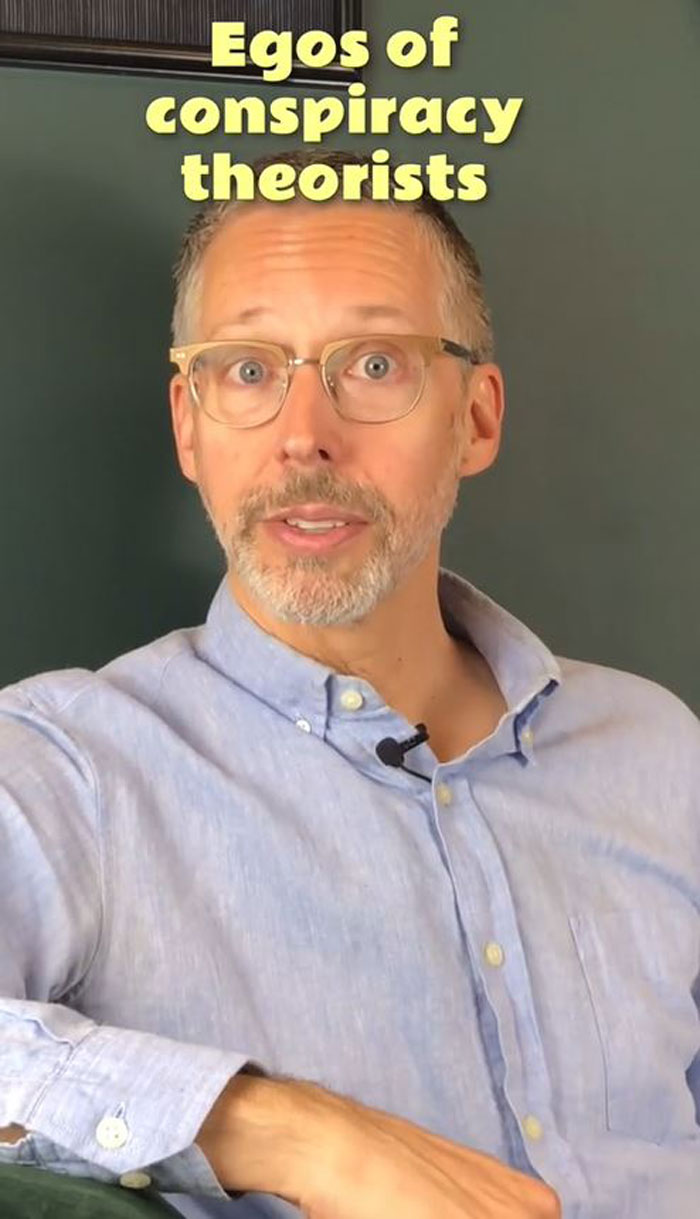
Image credits: petearthling
So, psychology educator David Hundsness, with whom Bored Panda got in touch, created a three-part series of TikTok videos discussing the topic of conspiracy theories. Namely, he explained why people believe conspiracies, focusing greatly on the idea that ego is mainly why people fall for them in the first place, and how to properly debunk them.
“I’ve always been fascinated with how people can be so illogical and irrational sometimes, even against their own good, and conspiracy theories are a great example of that,” explained Hundsness. “They are also very topical now with COVID and the vaccines, and The Big Lie of the 2020 election. So when I started this new TikTok video series, that was my first topic.”
While there are 4 reasons as to why people believe conspiracies, it’s ego that actually does the heavy lifting
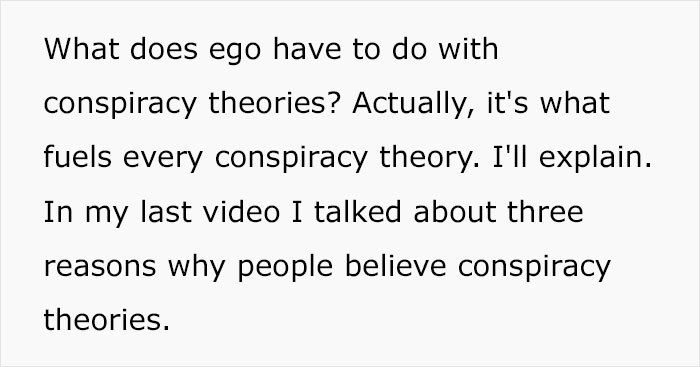
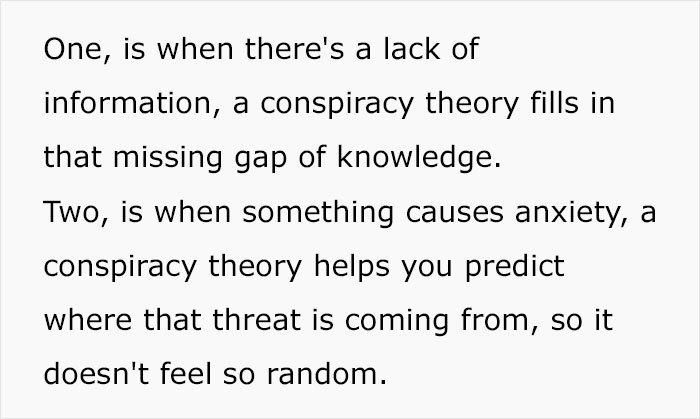
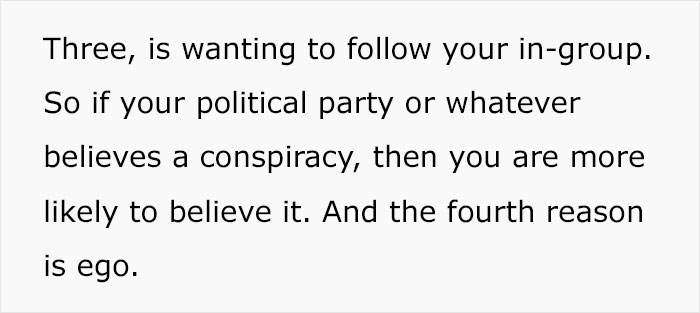
He elaborated by saying that it’s based on some research he found. In particular, the 4 categories he lists in his videos are based on Karen Douglas’ (et al.) Psychology of Conspiracy Theories, which covers three of them, and then Roland Imhoff’s (et al.) research article on ego specifically, which covers the last and main one.
He also referenced a CNN interview with Heather Simpson, an influencer and anti-vaxxer, as one of the inspirations for the video series.

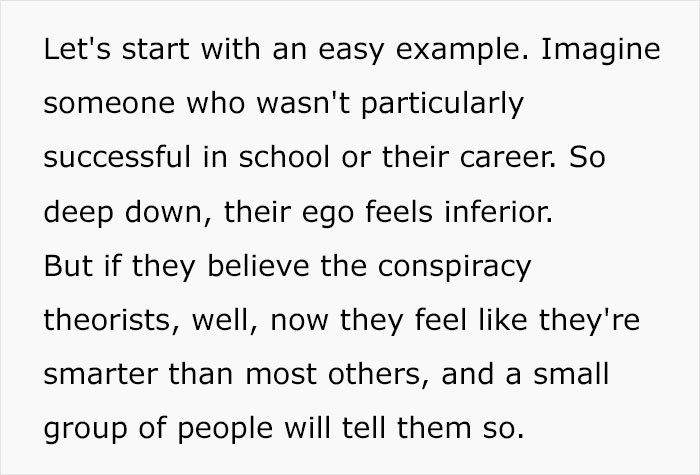

Speaking of reasons, Hundsness suggests 4 reasons why people believe conspiracy theories: [1] lack of information, whereby conspiracies fill in the missing knowledge gap, [2] anxiety, where conspiracies help pinpoint potential threats, [3] wanting to follow in-groups, e.g. if you’re associated with a certain group that wants you to believe stuff, and you will most likely will, and [4] ego.
Hundsness focused on ego the most as he believes it’s the biggest factor here. You see, conspiracists think they are a part of a special group of “independent thinkers who know the truth.” This means they have “intel,” superior knowledge or truth that others are too sheepy to acknowledge and thus mindlessly follow mainstreams and whatnot.
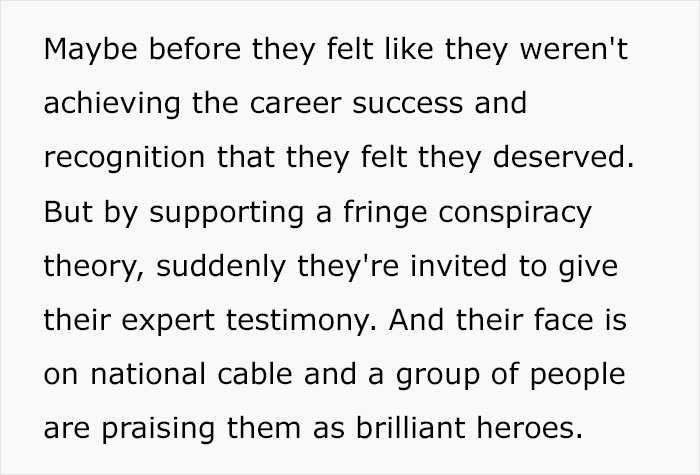
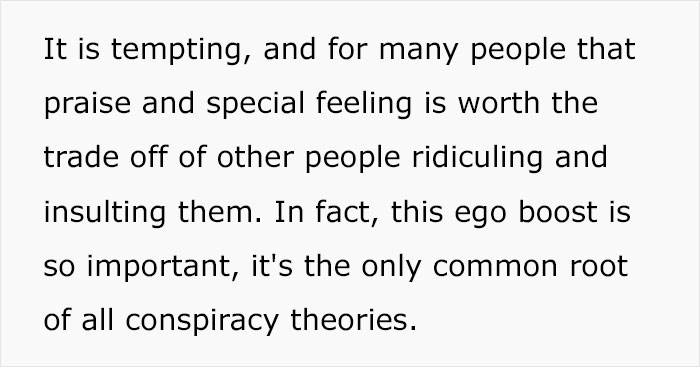
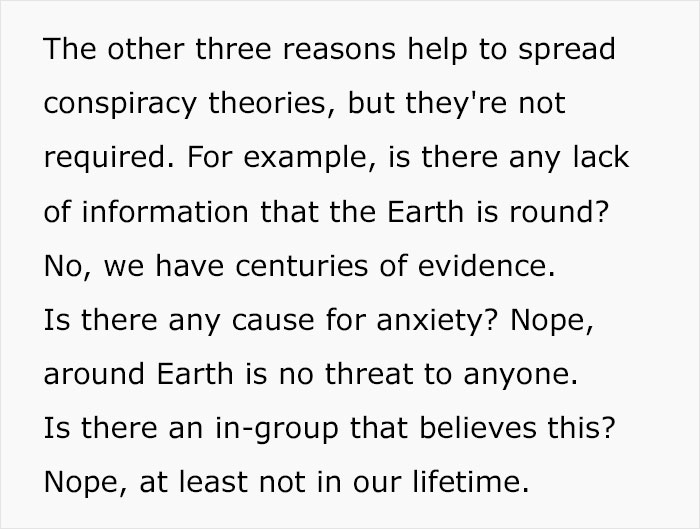
“Imagine someone who wasn’t particularly successful in school or their career. So deep down, their ego feels inferior. But if they believe the conspiracy theorists, well, now they feel like they’re smarter than most others, and a small group of people will tell them so,” explained Hundsness in his video.
The same applies to an educated doctor, for example. There are cases of a few doctors that take extreme positions against vaccines and masks, which is again fueled by ego because they may not have been achieving much in their careers, but now suddenly they are recognized and it feels great.
And you know what? This ego factor is the only common root of all conspiracies, while the other three may help spread them, but are not required.

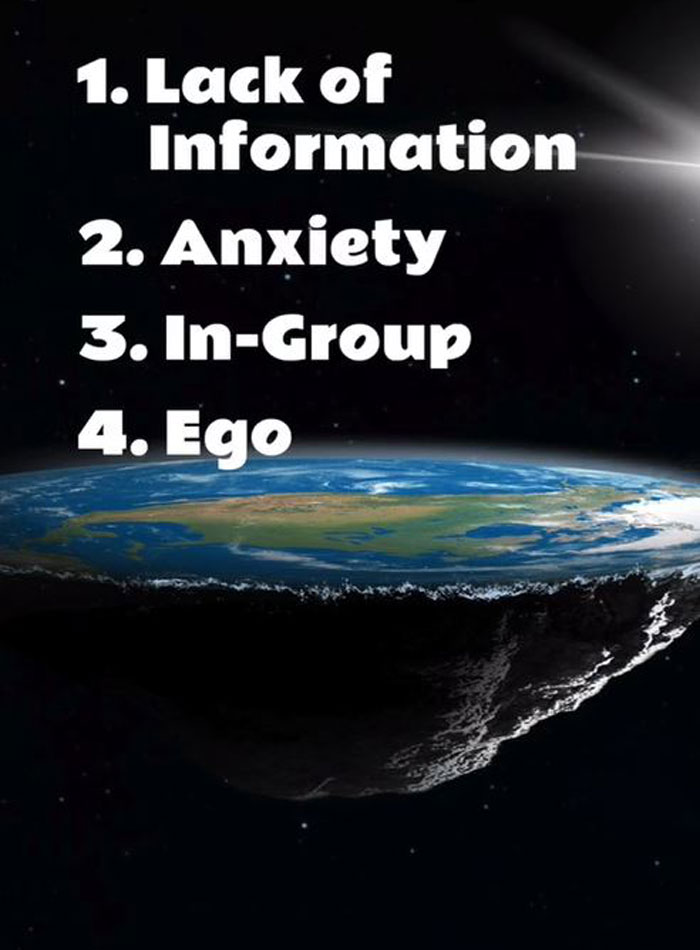
Image credits: petearthling
@petearthlingEgo is mainly why people fall for conspiracy theories. #psychology #covid19 #vaccine #biglie♬ original sound – David Hundsness
“Until a couple years ago, most Americans thought conspiracy theories were just harmless jokes—the earth is flat, the moon landing was faked, the government covered up UFOs and an alien autopsy,” elaborated Hundsness. “But over history around the world, conspiracy theories have been very dangerous and caused many deaths. We are seeing that now with the Capitol Insurrection and so many anti-vaxxers dying from COVID-19.”
Now, as you might have guessed already, or experienced, proving a conspiracist wrong to an extent that they admit it is nigh impossible for that same reason—ego. But there’s always hope.
Hundsness suggests that this has to be in a way that allows them to save face, and the news would have to be broken by someone who they trust, like a person from their in-group, or at the very least someone neutral. Also, letting this all slide and forgetting about it would help the process, but it can be a long and tedious one, requiring patience and time, so brace yourself.
People online had a lot to say, whether they agreed, disagreed or debated the issue
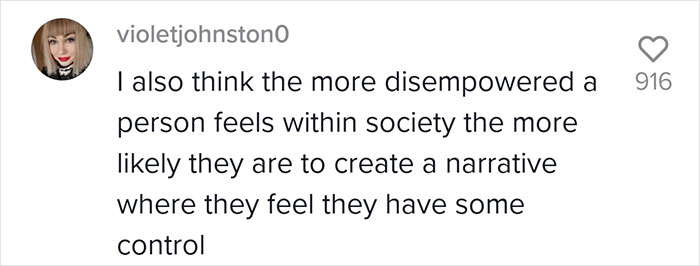

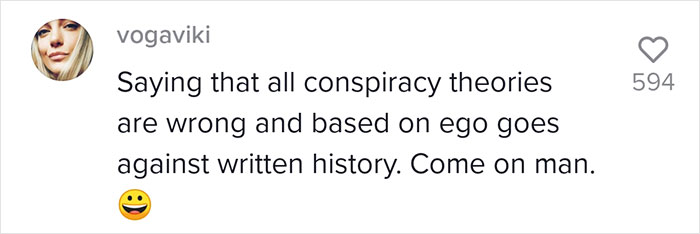

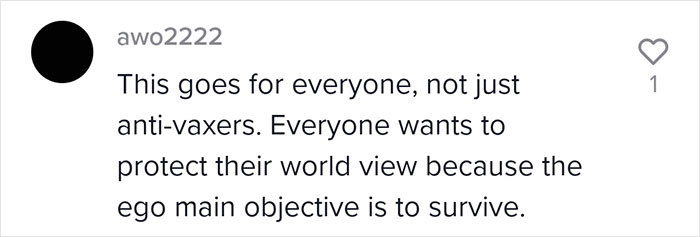
“Conspiracy theories normally aren’t planned or used for a purpose—e.g. the moon landing was faked, the world is flat, the monarchy assassinated Princess Diana, etc. That’s just stuff people started to believe. No one has anything to gain from that (except people who sell stuff to conspiracy theorists).”
“But ‘The Big Lie’ is a glaring exception. Trump and his party had a lot to gain by sowing doubt about the 2020 election. So that was deliberate emotional manipulation for political gain. Even though they failed to overturn the election, they held onto a huge following because of this tactic,” concluded Hundsness.

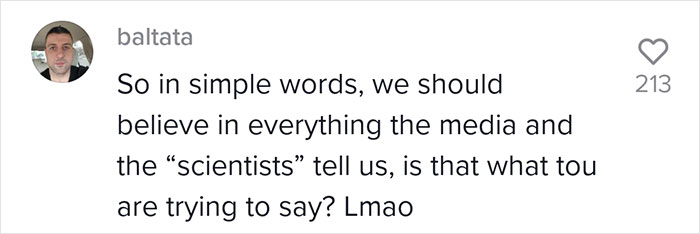
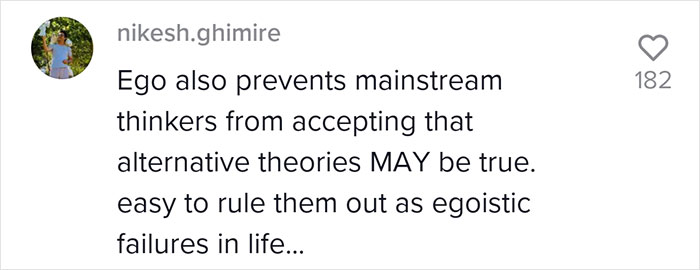


The video series drew quite a bit of attention from the internet, garnering over 2.2 million views with 200,000 likes on TikTok.
People online had loads to say. While many agreed with Hundsness, some others pointed out that it can go both ways and that those in the mainstream can be influenced by ego as well. There was one commenter who also pointed out that conspiracies may also be catchy because they make life less boring—like a good movie.
You can watch everything on Hundsness’s TikTok channel, or check out his website or YouTube channel. But before you go, tell us your thoughts on this. Do you agree, disagree, or simply have more to add about ego? Share your ideas in the comment section below!
The post Psychology Educator Gives 4 Reasons As To Why People Fall For Conspiracy Theories, Revealing That Ego Plays An Important Role first appeared on Bored Panda.


No comments